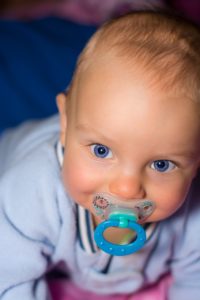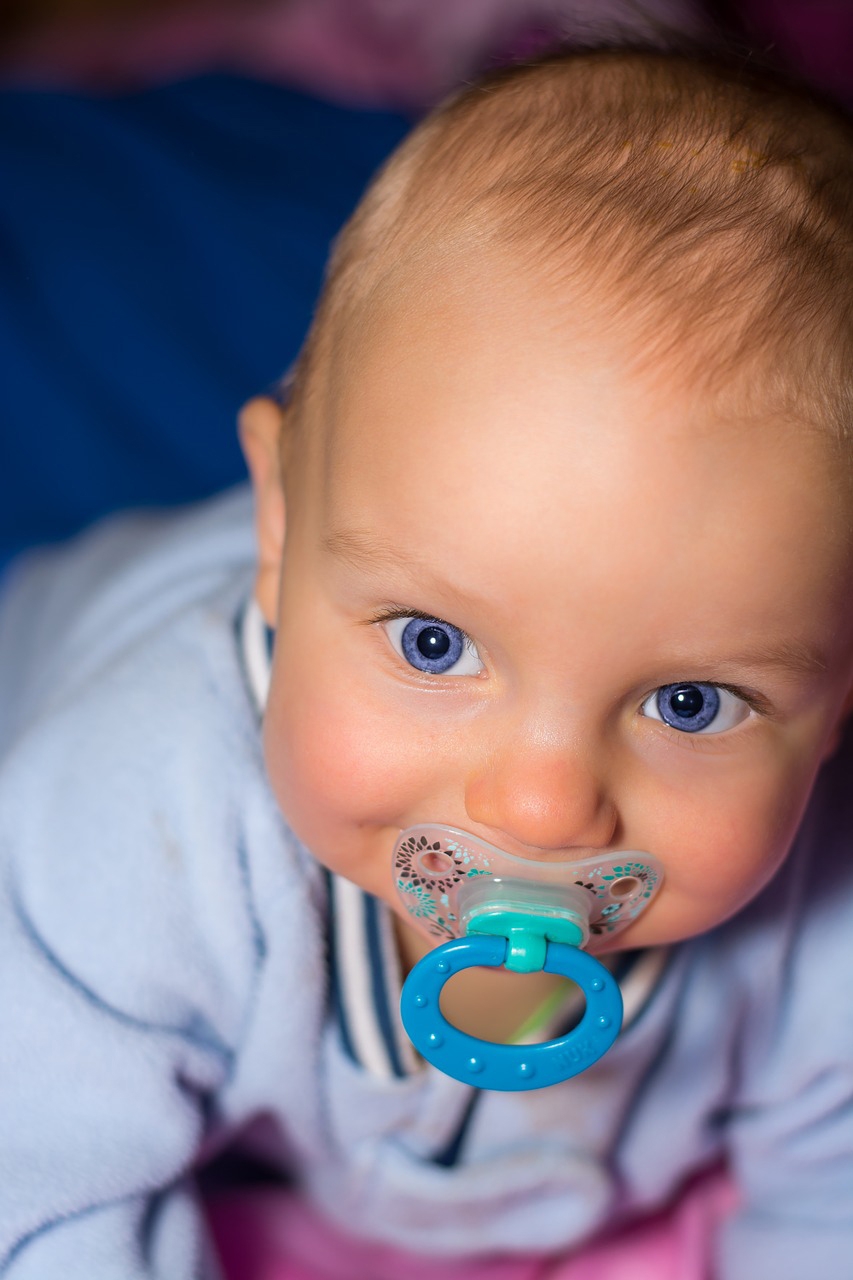The Risks of Prolonged Use of a Pacifier
by Paige Luetkemeyer, MS, CF-SLP
Kids Place Central Speech Language Pathologist
 It’s in your nature to comfort your baby when in distress. Pacifiers are a helpful tool that not only soothes a crying baby but also satisfies her natural sucking instinct. In fact, several studies have shown that pacifier use is also associated with a reduced risk of Sudden Infant Death Syndrome (SIDS). It is important to note, that while pacifiers offer many benefits in the early months of development, prolonged use of pacifiers also has many disadvantages.
It’s in your nature to comfort your baby when in distress. Pacifiers are a helpful tool that not only soothes a crying baby but also satisfies her natural sucking instinct. In fact, several studies have shown that pacifier use is also associated with a reduced risk of Sudden Infant Death Syndrome (SIDS). It is important to note, that while pacifiers offer many benefits in the early months of development, prolonged use of pacifiers also has many disadvantages.
Dental Problems
The use of pacifiers past 24 months of age may lead to dental problems, including the protrusion of front teeth as well as an improper bite.
Speech Problems
The continued use of a pacifier encourages the tongue to thrust forward between the teeth. This may lead to speech production errors, including difficulties producing sounds such as ‘s’ and ‘z’.
Language Problems
If a pacifier is continually placed in her mouth, it may delay expressive language skills. With a pacifier in her mouth, she may rely on gestures, such as pointing and reaching, in order to obtain wants and needs rather than attempting to vocalize or verbalize.
Feeding Problems
In infancy, she follows an immature suckling pattern where the tongue naturally protrudes forward to obtain nutrients through the breast or bottle. Extended use of a pacifier may continue to promote this immature, infant-like sucking motion rather than encouraging mature sucking patterns important for spoon feeding, straw drinking, and open-cup drinking.
Increased Ear Infections
The use of pacifiers is a risk factor for increased ear infections according to current research. Continuous sucking on a pacifier can impact the function of the Eustachian tubes. The Eustachian tubes are a small passageway on either side of the face that connects the throat and middle ear. Over time, the sucking pattern can cause the tubes to abnormally open, causing bacteria and secretions from the throat to seep into the middle ear. This can potentially lead to ear infections.
This information is not to discourage use of pacifiers. Pacifier use in the early months of development is great for the reasons above. However, experts suggest weaning an infant off a pacifier around 12 months of age in order to avoid potential negative consequences.







